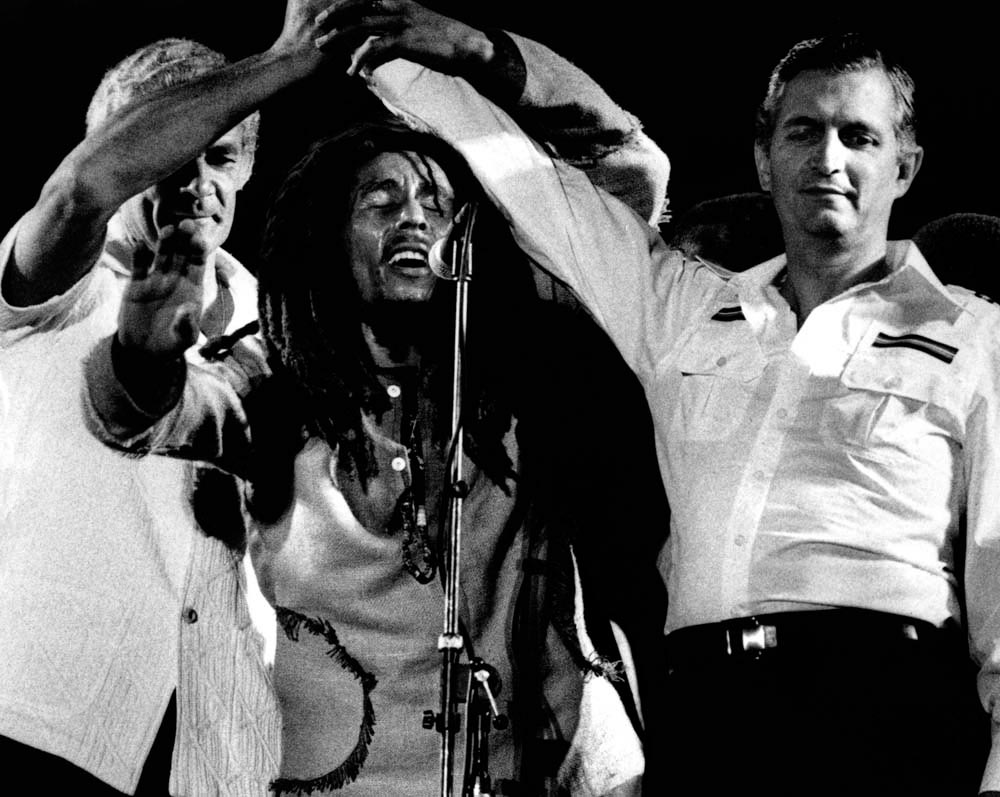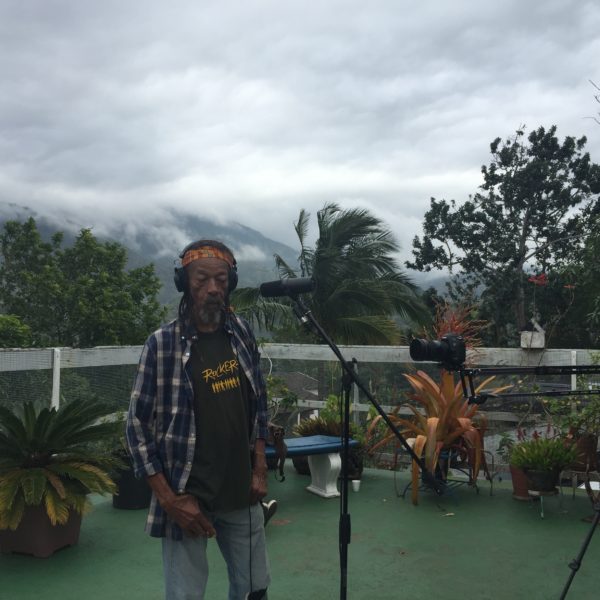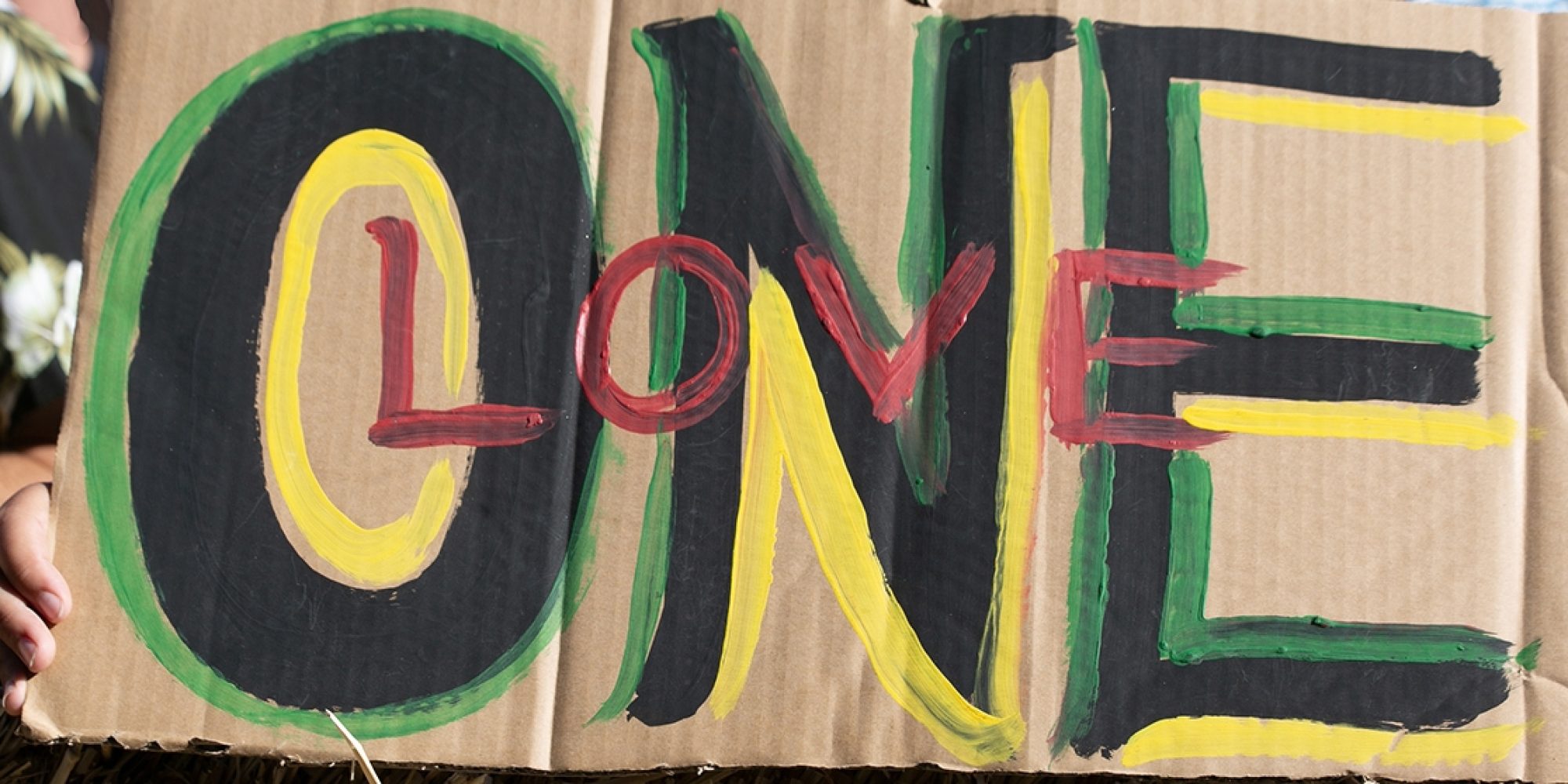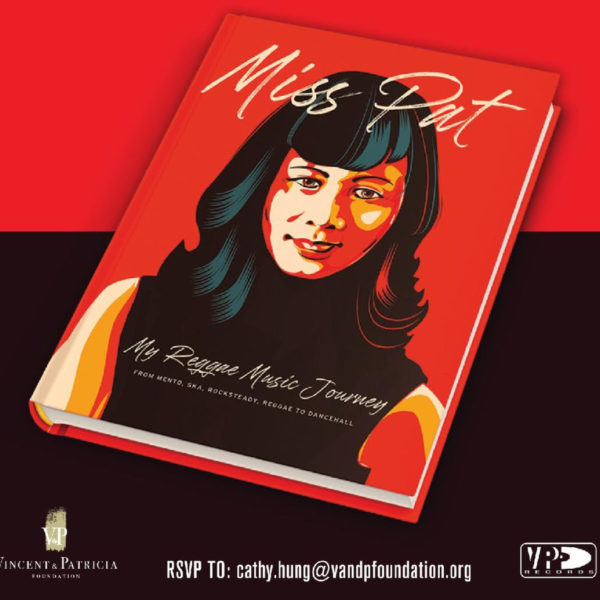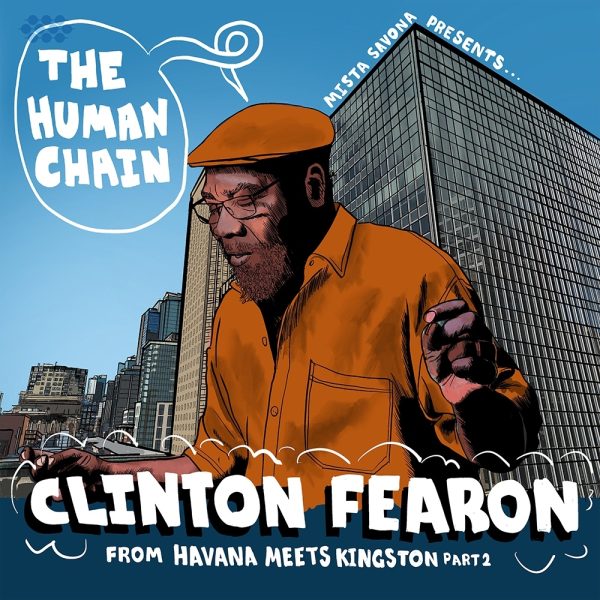Photos by Sista Irie Photography
More than a few reggae fans thought they’d never see another edition of the Sierra Nevada World Music Festival, the Northern California event, which for 25 editions had become known as the annual summer highlight for reggae connoisseurs. The fest had last taken place in 2018. The 2019 edition was cancelled due to the failing health of visionary founder Warren Smith, who passed away in 2021, and we all know what’s happened to the live music world since then, with many festivals collapsing due to the combined weight of covid and inflation.
Yet Smith’s widow Gretchen resurrected SNWMF for a triumphant June return in Boonville, CA. (The fest’s name reflects its original location, but it now takes place in a remote town in the mountains of Mendocino County.) And she programmed a blockbuster weekend of Jamaican superstars as well as music from Africa, Haiti and Brazil.
While the most obvious story was the living musical tribute to Warren and the return of the peaceful and diverse audience that reggae is famous for, it’s also noteworthy that a large crowd showed up for a reggae festival that centers on Jamaican artists. A few years ago, it would have semed obvious that Jamaicans would be at the top of a reggae bill, but in recent years – and especially in California – watered down U.S.-based rock/reggae bands, often with few or no Black musicians in their ranks, have become the norm at commercially-driven events. The 2023 SNWMF proved that Jamaican reggae artists, ranging from upstarts to legends, still have plenty to say.
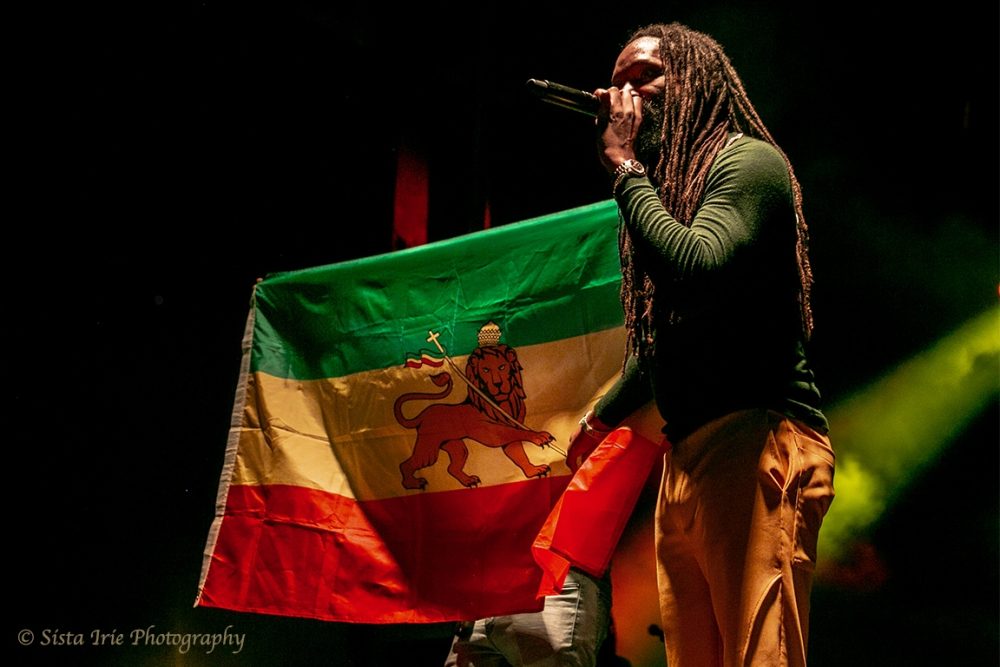
Friday night kicked off with Kabaka Pyramid and Luciano, two artists who have carried the torch for positive reggae driven by Rastafarian ideals. Kabaka has arguably been underrated since emerging with the pack of so-called “reggae revival” artists a decade ago, but that changed in a big way earlier this year when he won the Grammy for Best Reggae Album. Kabaka has always been an artist who addresses contemporary issues, and his set at SNWMF was no exception as he touched on everything from George Floyd to what he called the need for global marijuana decriminalization that does more than just benefit large corporate cannabis companies.
Luciano was a fitting closer for the first night since, like SNWMF, he’s been badly missed in recent years during an extended absence from U.S. stages. His sterling set hit all the right notes as he focused on the classics he cut in the ‘90s. His backup singers and Jah Messenjah band were in fine form, especially tasty guitarist Eduardo Gross, who used to be with the California band Groundation. Speaking backstage Luciano explained to Afropop that now-resolved visa issues had kept him from U.S. soil. “So I just kept busy going to Europe and Africa and some other places,” he said. (There was an especially large contingent of Kenyan Luciano fans near the front of the stage during his show.)
“We all have challenges along the way of life. I didn’t take it negatively. I love challenges,” added Luciano, who noted that the restoration of his visa nicely coincided with the resumption of the festival. “Warren Smith planted a great seed,” he said. Now making up for lost time, Luciano will be in Boston, Minneapolis and Atlanta later this summer.
Kabaka’s next East Coast date is an ambitious Afrobeats Reggae package in Coney Island headlined by Yemi Alade, and there’s little doubt that Jamaican artists and fans are paying close attention to the big sound coming out of Africa right now. Luciano said he’d be up for an Afrobeats collaboration – as long as the message of the tune fit alongside his “songs of inspiration.” The genre was represented at SNWMF by the Afrobeats Oakland collective, whose DJ Juan G had the smaller Village Stage area filled with shimmying dancers. Speaking before his set, Juan G said that while much of the attention is now focused on Nigerian Afrobeats and South African amapiano, he thinks sounds from East Africa will soon be hitting dance floors across the world.
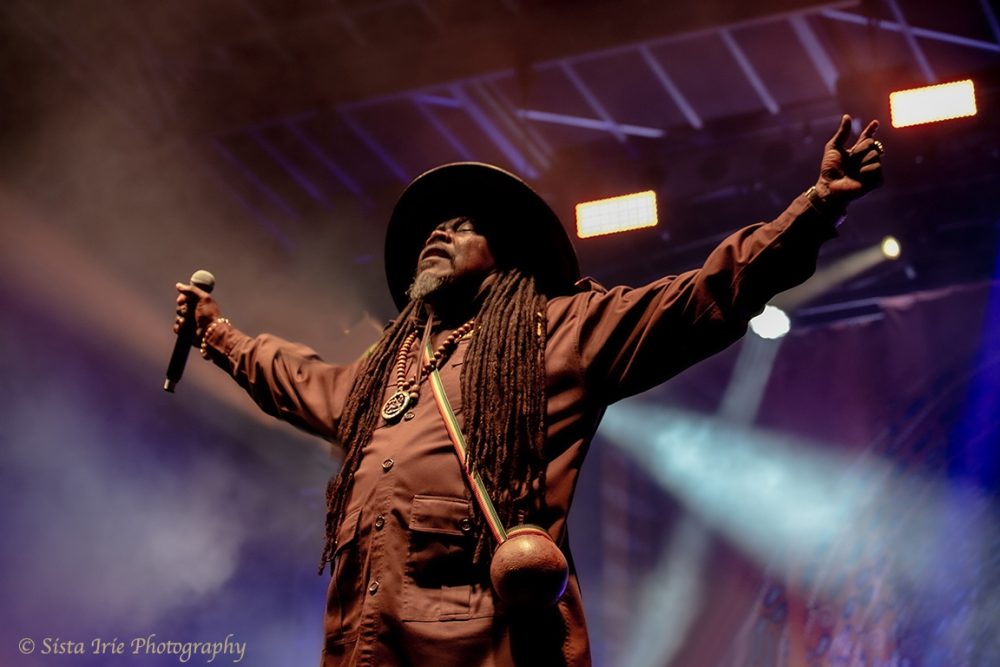
Jamaica’s heritage was on full display on Saturday as the festival featured six of the island’s all-time greats offering a history lesson of the music in rapid succession. Starting off the day were the Clarendonians, the ‘60s ska group whose name reflects its origins in the same parish that also gave the world Toots Hibbert, Millie Small, Freddie McGregor, Linton Kwesi Johnson, and many other reggae legends. The duo now consists of original member Peter Austin along with Lincoln Cousins, and they were ably backed by the Steady 45s, a Southern California band that knows how to get the ska beat just right.
They were followed by the current incarnation of Soul Syndicate, one of the great ‘70s Jamaican studio bands. Original guitarist Tony Chin, bassist Fully Fullwood, and singer Donovan Carless showed how the group had originated many of the most popular Jamaican riddims that still power hit records to this day. Carless sang his great version of “Be Thankful For What You Got,” which he recorded with the Soul Syndicate 50 years ago.
Soul Syndicate then stayed on stage to back Johnny Clarke, a mainstay of the European and U.K. reggae circuit. Clarke rarely gets to perform his crucial ‘70s tracks like “None Shall Escape the Judgement” in the U.S. He’s always an excellent live performer, but sounded especially good backed by Soul Syndicate.
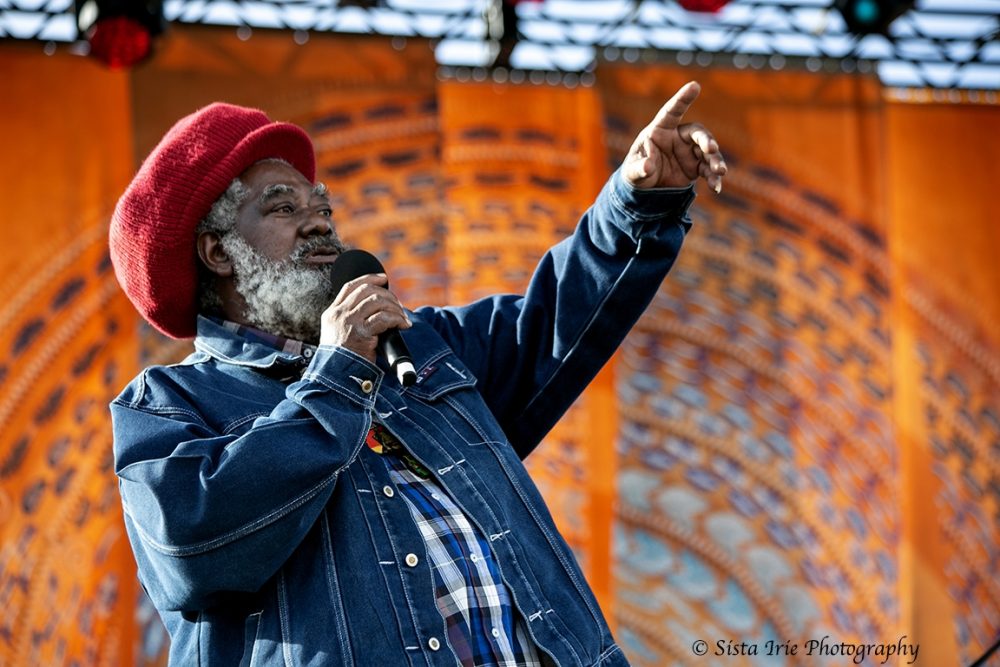
Then it was back to the early days of ska with another Clarendon-bred artist, Derrick Morgan. At 83 Morgan can neither see nor walk yet he still maintains a regal presence on stage that befits his deserved moniker the King of Ska, and along with the Steady 45s he had the crowd chanting along to rude boy anthems like “Forward March” and “Tougher than Tough.”
At 44, Tarrus Riley jokes that “some artists call me big bro and some call me likkle youth.” But Riley has earned his stripes through decades of top-shelf records and energetic shows with a band led by the noted saxophonist Dean Fraser, and he drew one of the largest crowds of the weekend.
At the dancehall (a repurposed fairgrounds grange hall) the Brazilbeat Soundsystem, which is now based in New Zealand, combined deejaying with live percussion for a rhythmic tour of Brazil.
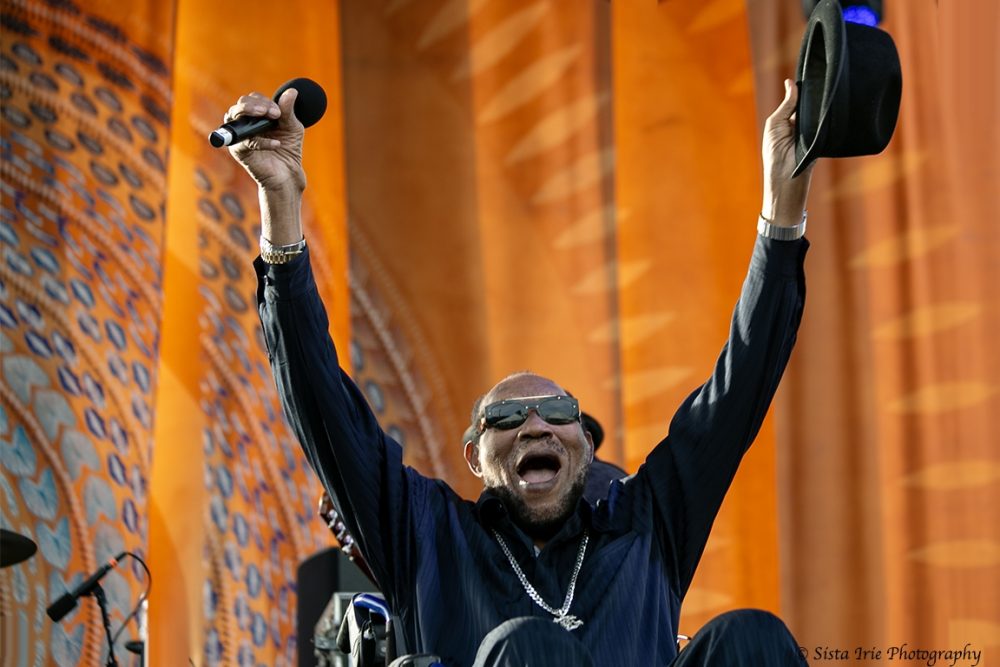
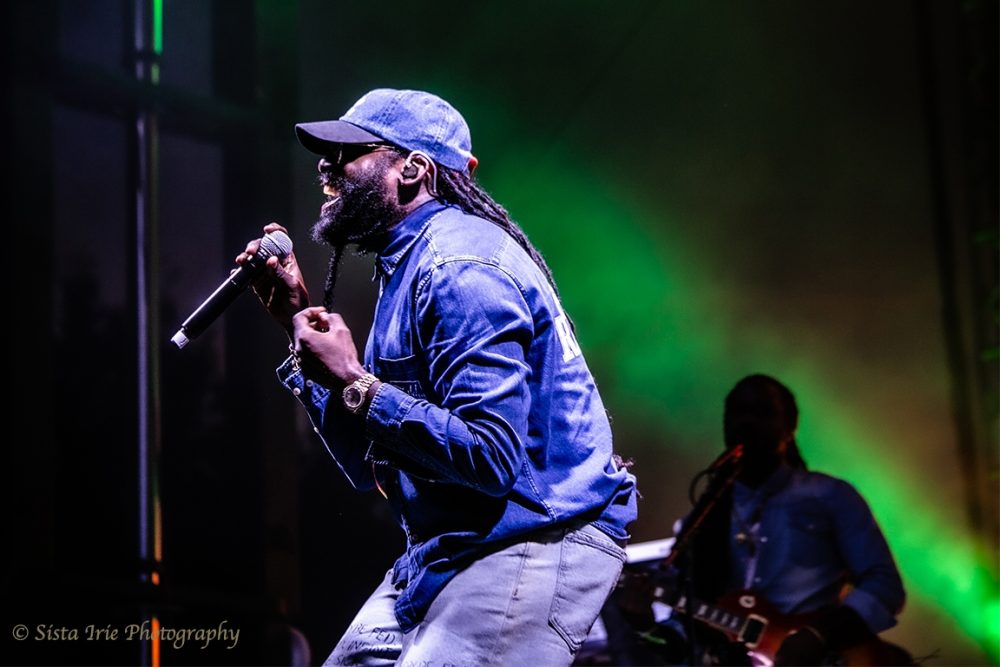
It had been a day of big artists with big hits, and it ended with one of Jamaica’s most successful artists of all time, Beres Hammond. Beres is often called a lover’s rock artist, but the stories in his songs are never sappy romances. Instead they depict adults making their way through a complicated world. Live, with his sprawling Harmony House band and singers, Beres adds another level of soul that makes already classic songs just a little bit more meaningful.
While Saturday had been heavy on male Jamaican acts, Sunday had more of an international flavor as well as some noteworthy ladies of reggae. You could call Wesli, the Haitian-bred, Montreal-based singer, songwriter, and hot guitarist, a one-man world music festival. Along with his band of multi-instrumentalists he touched on reggae, compas, soukous, and the Haitian rara horns which, like reggae, are a symbol of resistance. This was Wesli’s first time touring the West Coast and he quickly had a large crowd dancing in front of the stage. It was nice to see this great artist who’s been deservedly making fans on the East Coast go over so well. He’ll be touring throughout Canada the rest of this summer and also has a pair of upcoming shows in Vermont.
A few Bay Area artists represented Brazilian culture on the Village Stage. Capoeira school Aqua de Beber showed off its exciting moves. Batuki mixed samba drumming and dancing with an electric band that echoed San Francisco’s psychedelic rock heritage.
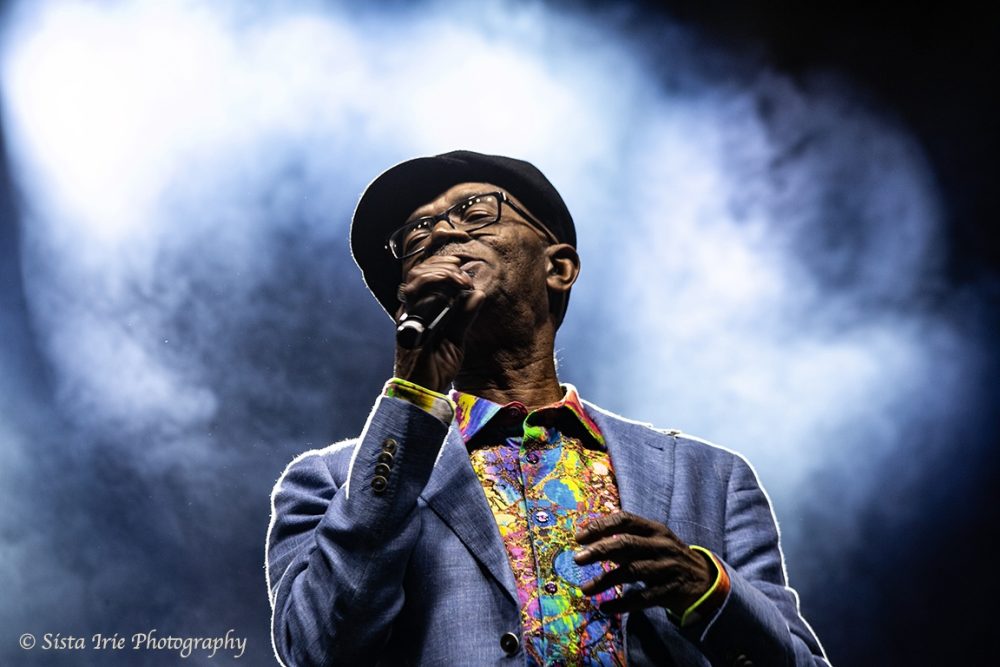
Meanwhile, Malian superpicker Bassekou Kouyate and his family band Ngoni Ba finished their current U.S. tour with the kind of scorching performance that’s made them a longtime Afropop favorite. Based on the response it looked like Bassekou made a lot of new fans in Boonville.
SNWMF is famous for exclusive sets by important figures in reggae history – even, as festival M.C. and L.A. historian and radio host Junior Francis put it, if they’re “one step from nursing home.” The troubled but powerful singer Junior Byles’ only U.S. date was at the fest, as was Prince Buster’s only time performing West of the Mississippi. One of the great queens of Studio One music was Norma Fraser, who despite having lived in the U.S. for years is rarely found on reggae stage shows. Expertly backed by L.A.’s Kingston A Go Go, Norma showed that she’s still quite a spitfire on stage – or as she put it, referencing her barely five feet stature and a common Jamaican proverb, “Me likkle but me tallawah.” Fraser’s set included a handful of her Studio One recordings but mostly focused on crowd pleasing reggae classics from her peers like Toots and the Maytals, Desmond Dekker, and Bob Marley before ending with her smash version of “The First Cut is the Deepest.”
Speaking to the press after her performance she reminisced about teaching Rita Marley how to sing, and talked of how label owner Coxsone Dodd was both a brilliant producer and “a thief.”
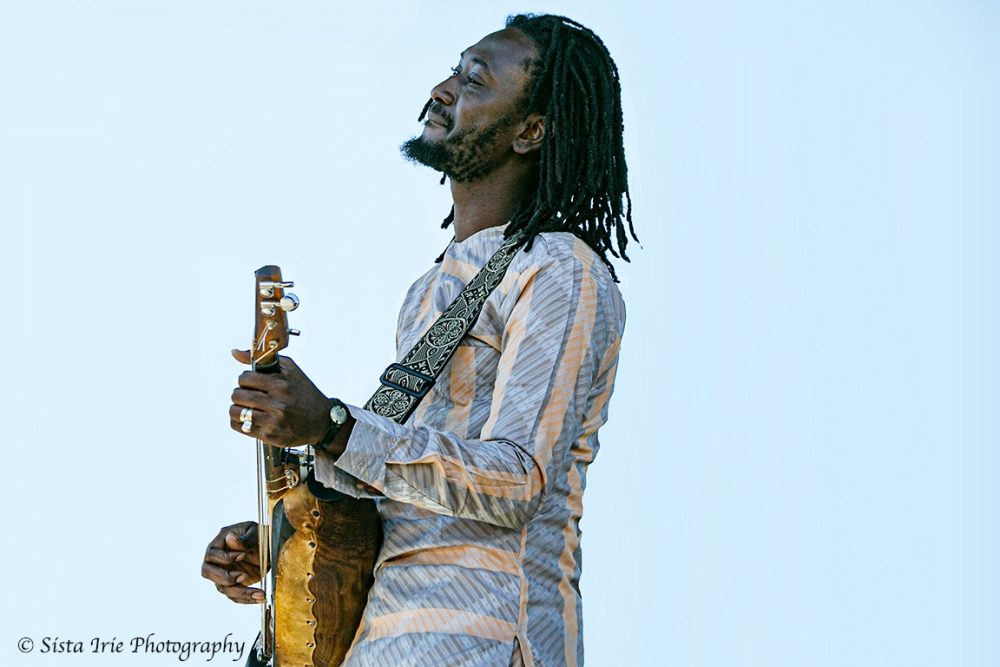
Friends of Afropop Michael Turner of the “Roots Knotty Roots” discography and Brad Klein of the “Legends of Ska” film were on hand and reminded Fraser that, decades before reggae and Afrobeats were mixing, she had made the first ever reggae recording of an African song when she and Lord Brynner made a duet singing Miriam Makeba’s “Malika.” Fraser said the idea for the track came from Brynner, a Trinidadian calypsonian who often came to Jamaica to record.
These days Fraser is perhaps the only reggae legend residing in Oregon. She told Afropop that she moved there after playing an especially spirited show. “I had never seen so many white Rastas in my life. I loved it. I’ve never seen an audience give the artist so much weed. I thought they were going to take me to jail, but the drummer said ‘It’s O.K., this is Eugene.’ I said I have to move there!”
While Fraser was chatting, the main stage held proof that women in reggae are finally getting their deserved spotlight as Lila Iké put on a strong set. Iké is, well, a protégé of Protoje, whose own set demonstrated that while he may be busy these days as a producer and label owner he still knows how to work an audience.
The weekend closed with that icon of roots reggae: Burning Spear. After many years away from the stage Winston Rodney toured internationally in 2022, and he’ll be in Europe and Israel later this summer. His first studio album in 15 years, No Destroyer, is being released August 18, the day after Marcus Garvey’s birthday. While the sun set over the mountains in Boonville, Spear sang about Kilimanjaro, and the Burning Band was given some extended space to groove on Spear classics like “African Postman” and “Jah No Dead.”
When the music was finished, an emotional Gretchen Smith took the stage and thanked everyone who had made possible a weekend where, she said, the spirit of Warren had been continually present. Ms. Smith ended by suggesting that the reggae-loving family of SNWMF would meet again down the road.
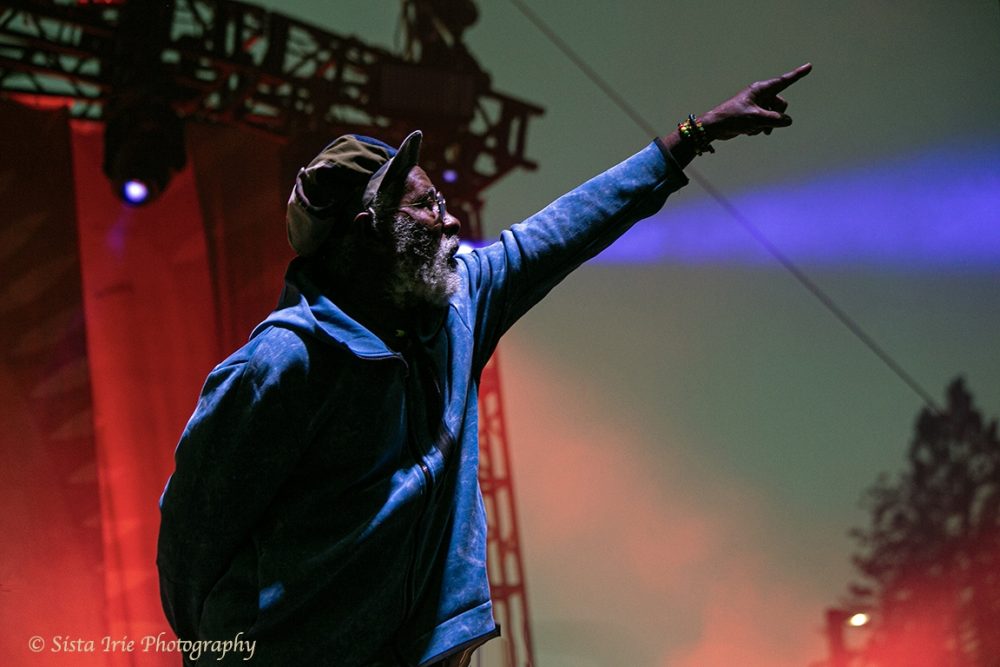
Related Audio Programs
